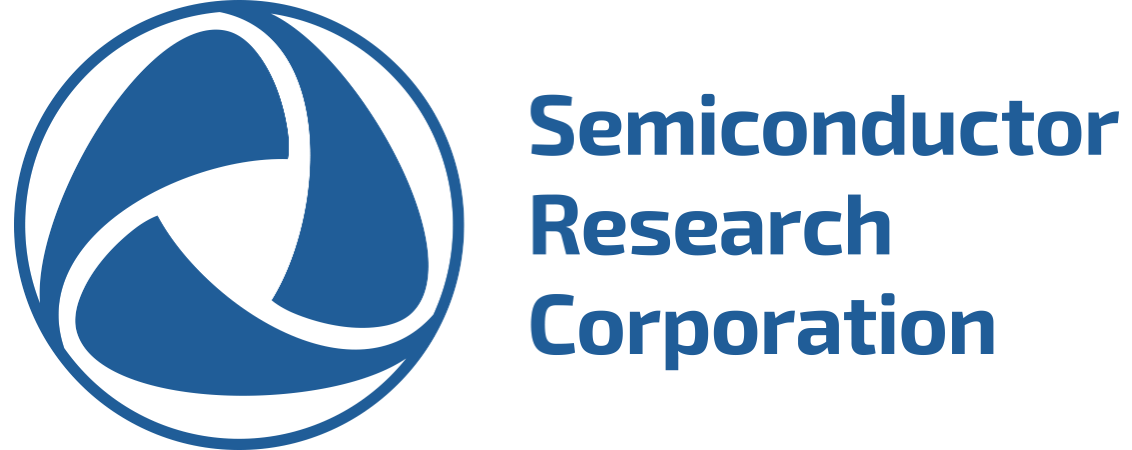2006 Aristotle Award
 Professor Mark Law, recipient of the 2006 Aristotle Award, pictured with current students Diane Hickey (L) and Leah Edelman (R)
Professor Mark Law, recipient of the 2006 Aristotle Award, pictured with current students Diane Hickey (L) and Leah Edelman (R)
The Aristotle Award is given to SRC-supported faculty whose deep commitment to the educational experience of SRC students has had a profound and continuing impact on their professional performance and consequently a significant impact for members over a long period of time. The Award is intended to acknowledge outstanding teaching in its broadest sense, emphasizing student advising and teaching during the research project thereby contributing to the maturation of the student.
The 2006 Aristotle Award was presented by Ralph Cavin Sumney at the 2006 Student Symposium Banquet. The following is the text of the presentation.
The capability to positively impact the lives of their students is a unique opportunity and privilege of university faculty. This is a high calling that requires that faculty dedicate themselves to the preparation of their students, not just in the sciences, but also to create in them a larger world view on the use of their skills for the well-being of humanity. The careers of some faculty demonstrate an exceptional and unique commitment to the preparation of their students. We are here tonight to acknowledge the contributions of one such faculty member through the presentation of the SRC Aristotle Award.
The Call for Nominations for the Aristotle Award begins as follows: A primary goal of SRC is to produce advanced degree students with the capability to work effectively in the semiconductor industry. The Aristotle Award recognizes SRC-supported faculty whose deep commitment to the educational experience of SRC students has had a profound and continuing impact on their professional performance and consequently a significant impact for members over a long period of time. The Aristotle Award is intended to acknowledge outstanding teaching in its broadest sense, emphasizing student advising and teaching during the research project thereby contributing to the maturation of the student.
The Aristotle Award was authorized by the SRC Board of Directors in 1995 to recognize professors who best contribute to the development of the industry's most valuable resource, its human resource. The list of winners of the Aristotle speaks volumes about the quality of SRC researchers and the high standard set for SRC students. The awards have been made to some of the most exemplary university faculty in this country, and this year's award continues that tradition. Professor Mark Law is eminently qualified to receive the 2006 Aristotle Award.
We begin to recognize Professor Law's achievements with a quote from "Dr. Dennis Buss, TI Vice President of Silicon Technology Development, "Mark Law is, arguably, the #1 university research faculty in TCAD in the world today [and he has] generated a steady stream - 15 to date - of top TCAD students," Other supporting letters for Mark's nomination for the Aristotle were equally as strong. When we read the nominations for the Aristotle Awards, themes seem to always emerge, and that was definitely the case with this nomination. A very strong theme was Dr. Law's connection to industry and his insistence that his students share that connection. Internships are seen as a "vital part of the educational experience." "Typically, half of the SWAMP group has summer internships at SRC companies." He always brings a large group of students to SRC contract reviews and encourages students to present their own work. He has co-authored 42 student proceedings articles for refereed conference meetings in the last five years and nearly all were student-presented.
A second theme that emerged from the nomination and supporting letters was Mark's "special effort to develop research interest in undergraduate students, allowing them to participate in projects in a meaningful way and so encouraging them to continue on to graduate work." Dr. Hernan Rueda, now with Freescale and an Industry Liaision to Dr. Law's research said, "I first worked with Mark as an undergraduate.Had it not been for his advisement and guidance, I would definitely have finished my academic career then." Beyond his direct recruiting of undergraduates to his research program, Mark has been committed to curriculum reform at the undergraduate level, driving curriculum changes reflective of the needs of industry and his experience in the semiconductor sector and to expanding research opportunities for undergraduates through industry partners and other sources.
A final theme that emerged was the interdisciplinary and practical nature of the training students receive under Mark's direction. This from Dr. Martin Giles at Intel, "I have been fortunate to hire several students from Mark's research group and have seen them seamlessly transition into the industrial world" Remarks from former students include, "His students' graduate research combines both experiment and modeling," and "He inspired me to learn as much as I can on many disciplines," "When I expressed a desire to explore the topic more broadly, Dr. Law gave me his fullest support and encouragement." And from another, "If I had to pick the one critical skill that I learned from Dr. Law, it is the design of experiments.He taught me how to make the simplest design possible and to increase the complexity step by step to gain complete understanding of the issues involved."
One former student summed up this way, "Professor Law is certainly one of the standout faculty supported by SRC." Dr. Law, it is with great pleasure that I present you with the 2006 Aristotle Award on behalf of SRC and SRC members.


